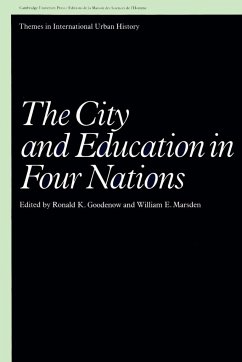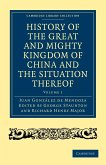This book offers a much-needed study of urban education across a range of nations.
The City and Education in Four Nations is a response to a long-standing need for the placing of urban educational study in broader comparative contexts, both historical and international. This volume offers an account of the historical educational experiences of four major English-speaking countries, opening up new research agendas in a variety of fields. An international team of contributors has been assembled, combining historical and educational expertise, and the work should interest scholars in a number of disciplines, including urban history, urban and comparative education, social and public policy, social and cultural history and the history of education.
Table of content:
Introduction; Problematics and domains: thinking internationally about urban education Ronald K. Goodenow; Part I. Research in National Contexts: 1. History, education and the city: a review of trends in Britain David A. Reeder; 2. Education and America's cities Ronald D. Cohen and William J. Reese; 3. The 'state' of the history of urban education in Australia Kerry Wimshurst and Ian Davey; 4. Out of the shadow: retrieving the history of urban education and urban childhood in Canada Neil Sutherland and Jean Barman; Part II. Approaches to the Social History of Education: Ecology, Choice and Culture: 5. Social stratification and nineteenth-century English urban education William E. Marsden; 6. Compulsion, work and family: a case study from nineteenth-century Birmingham Christine M. Heward; 7. Understanding irregular school attendance: beyond the rural-urban dichotomy Ian Davey and Kerry Wimshurst; 8. Redoing urban education history Barbara Finkelstein; Part III. Needs and Opportunities: Policy and Theory Considerations: 9. Theory in educational history: a middle ground Carl F. Kaestle; 10. Approaches to urban education in the USA and UK David Coulby; 11. The uses and abuses of comparison in urban educational history David L. Angus.
Hinweis: Dieser Artikel kann nur an eine deutsche Lieferadresse ausgeliefert werden.
The City and Education in Four Nations is a response to a long-standing need for the placing of urban educational study in broader comparative contexts, both historical and international. This volume offers an account of the historical educational experiences of four major English-speaking countries, opening up new research agendas in a variety of fields. An international team of contributors has been assembled, combining historical and educational expertise, and the work should interest scholars in a number of disciplines, including urban history, urban and comparative education, social and public policy, social and cultural history and the history of education.
Table of content:
Introduction; Problematics and domains: thinking internationally about urban education Ronald K. Goodenow; Part I. Research in National Contexts: 1. History, education and the city: a review of trends in Britain David A. Reeder; 2. Education and America's cities Ronald D. Cohen and William J. Reese; 3. The 'state' of the history of urban education in Australia Kerry Wimshurst and Ian Davey; 4. Out of the shadow: retrieving the history of urban education and urban childhood in Canada Neil Sutherland and Jean Barman; Part II. Approaches to the Social History of Education: Ecology, Choice and Culture: 5. Social stratification and nineteenth-century English urban education William E. Marsden; 6. Compulsion, work and family: a case study from nineteenth-century Birmingham Christine M. Heward; 7. Understanding irregular school attendance: beyond the rural-urban dichotomy Ian Davey and Kerry Wimshurst; 8. Redoing urban education history Barbara Finkelstein; Part III. Needs and Opportunities: Policy and Theory Considerations: 9. Theory in educational history: a middle ground Carl F. Kaestle; 10. Approaches to urban education in the USA and UK David Coulby; 11. The uses and abuses of comparison in urban educational history David L. Angus.
Hinweis: Dieser Artikel kann nur an eine deutsche Lieferadresse ausgeliefert werden.








